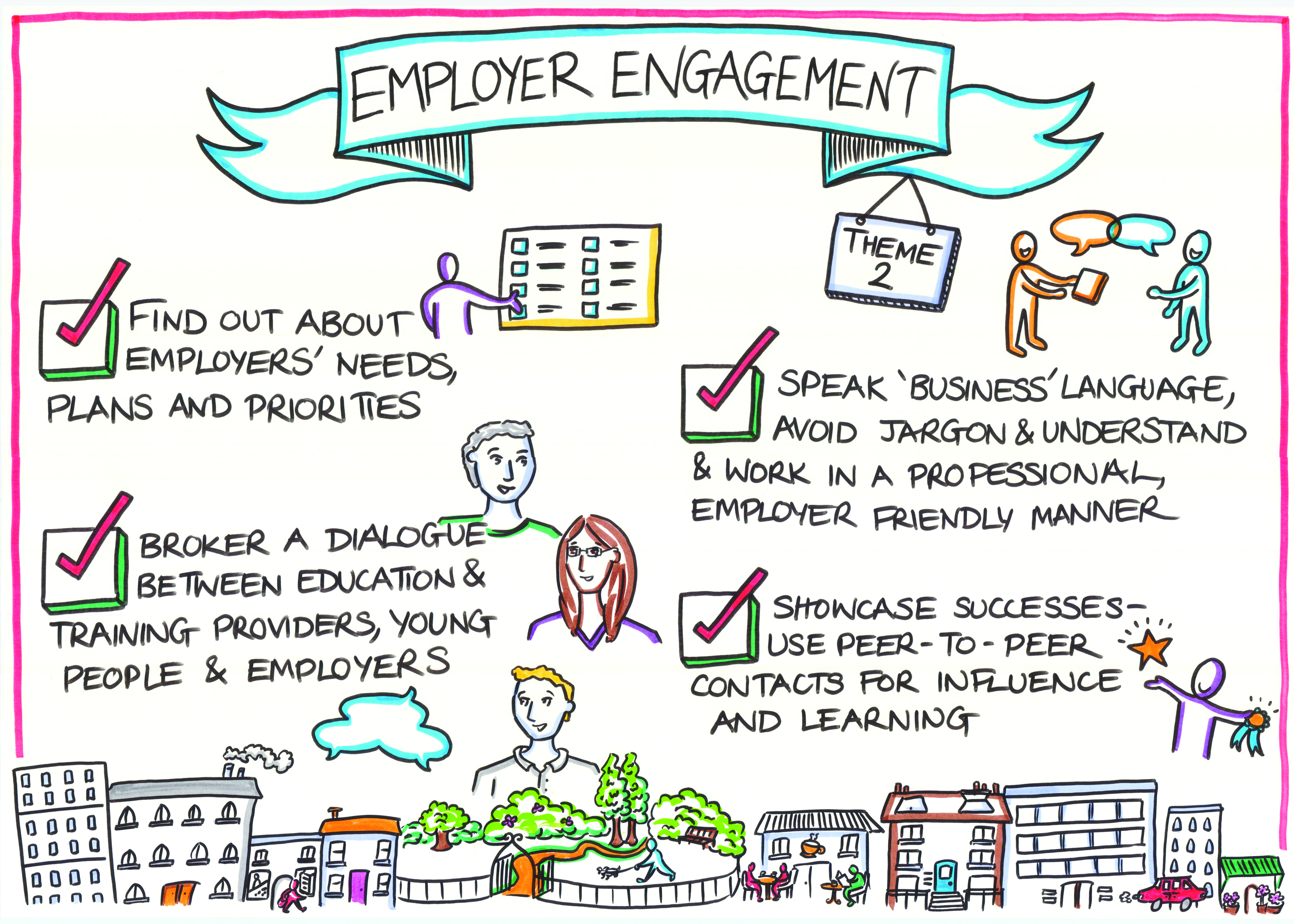The war for talent in cities
Edited on
09 October 2017‘The war for talent’ is a term first coined in 1997. In a ground-breaking McKinsey study (Steven Hankin of McKinsey & Company ) it described the increasingly competitive landscape for recruiting and retaining talented employees as a strategic business challenge and a critical driver of corporate performance. The study advocated a mind-set that emphasized the importance of talent to the success of organizations and a recognition that competitive advantage comes from having better talent at all levels.

This war for talent applies to cities too. The nature of the 21st century economy, based increasingly on knowledge, innovation and technology, requires high levels of skills and talented people. As argued by OECD in Regional Outlook 2014, cities can be the drivers of economic growth and recovery. However it does not happen automatically. Getting cities right is the essential challenge, and action at city level matters. This was one of the main messages of the URBACT New Economies report. Active policies to attract, develop and retain the talent needed to drive a changing economy are a key determinant of success.
Two of the new Action Planning Networks, Gen-Y City and TechTown will be taking up the urban dimension of this challenge, through different, complementary lenses. The Gen-Y City Network will focus on developing new and adapted urban policies, governance models and integrated action plans for developing, attracting & retaining young people of Generation Y creative-tech talent (particularly entrepreneurs) in European cities. TechTown will explore how small and medium sized cities can maximise the job creation potential of the digital economy, by exploring start ups, transformation, the nature of jobs as well as the talent and skills needed for a thriving digital economy. These networks will be building on URBACT knowledge from previous projects and capitalisation initiatives, such as ESIMEC, Jobtown, My Generation at Work, More Jobs and Job Generation. Further below you can access their Baseline Studies and some of the questions to be tackled in Phase 2.
Talent for smart growth
Achieving Smart Growth by developing an economy based on knowledge and innovation is one of the Europe 2020 priorities. There are headline targets around R&D investment and a number of Flagship Initiatives, many of which will be delivered through Cohesion Policy instruments. These two new URBACT networks will contribute to several of the Cohesion Policy Thematic Objectives such as enhancing the competitiveness of SMEs, promoting entrepreneurship and the creation of new companies and investing in education, skills and lifelong learning.
The goal for cities (as stated in the European Commission’s Grand Coalition for Digital Jobs, 2015) is to foster a truly entrepreneurial culture to maximize the (digital) potential of Europe’s SME-driven economy and to become magnets for highly skilled talent and distinctive places for doing business. Every city in Europe needs policies, approaches and solutions to develop, retain and attract talent, particularly technology and creative professionals and entrepreneurs, if they are to remain prosperous and vibrant cities.
So what role do talent and skills play in driving or hampering smart growth? What are the challenges, barriers and potential solutions?
A lack of skilled labour in high growth, high value sectors such as digital and creative industries, and especially in STEM (Science Technology Engineering Maths), will be one of the main obstacles to economic growth in the coming years. In spite of the crisis, demand for STEM skills is increasing across the globe. Some forecasts suggest around 7m STEM related job openings will emerge between now and 2025. There are also skills mismatches, with imbalances between what employers need and what job seekers offer, at times related to geography, sector and mobility. This contributes to skill shortages and skill gaps (too few people with the required skills), on the one hand, and structural unemployment (too many people without the required skills) on the other.
In order to match skills supply and demand in future digital and enterprise skills need to be embedded into education from early years to higher education, through vocational training and lifelong learning. As Herman Van Rompuy said in his article Boosting Digital Europe[i] (Digital Minds, European Digital Forum, 2015), 'Unemployment today is about poor skills, not necessarily about poor education'. As more and more 'traditional' jobs are becoming 'digitalised' in some way, so more and more digital skills - from basic ICT skills to more sophisticated coding or programming skills - are needed. Indeed by 2020 it is estimated that 85-90% of all job vacancies in Europe will require digital skills. The perception of STEM jobsneeds to be improved and more young people, especially women, encouraged to follow STEM career paths.
So, coming back to the city action that matters, civic leaders can not assume that their local skills system will deliver enough people with the right skills to sustain the prosperity of their cities. Instead cities will need to cultivate talent ecosystems which are capable of attracting the specialists that businesses need to maintain their competitive advantage; that can stimulate new high growth business start-ups; and that can provide the lifestyle experiences many talented professionals and young people crave. Employers can be engaged and even lead these actions, like the example from Leeds in Job Generation.
The specificities for medium sized cities
All across the world cities are under pressure from global talent flows and the pull of more glamorous cities. Whilst authors like Michael Porter have long argued that the combination of a few key factors of place (availability of labour, knowledge base, land availability, raw materials, size of the population, local culture etc.) can provide locations with a source of competitive advantage, increased labour mobility has intensified that competition. The current economic crisis has increased intra-country and intra-European talent mobility, with Europe’s population generally migrating from smaller to larger cities and from Southern & Eastern Europe to North West Europe. As a result some of the smaller and more peripheral cities are in decline, as evidenced in URBACT Shrinking Cities report.
Both Gen-Y City and TechTown will focus on the particularities of small and mid-sized cities. For partners in the peripheral, less developed, less connected cities of Europe the talent and skills challenge is more acute and addressing it even more vital. The two networks will bring together stakeholders in cities of similar sizes and contexts to work out how identify, grow, retain and return the talent that can drive their future oriented business growth. This will include exchange on the city’s quality of life offer that can draw in talent and keep it in the city.
Medium cities have to find ways to collaborate and compete with powerful places closer to home – As part of this reflection we realised that other medium sized cities were probably asking themselves similar questions: How do we compete with larger city centres and their accompanying lifestyle offer, higher salaries, connectivity to higher education and larger knowledge based communities?
Tracey Johnson of Barnsley, Lead Partner of TechTown
Although some practices from successful larger cities provide interesting examples for the networks, the TechTown Baseline states that cities of this nature don’t necessarily offer useful lessons. On the whole, for instance, smaller cities have less developed digital economic strategies or indeed none at all, whilst in larger Tech hubs this growth is happening organically. Both networks will explicitly seek to find solutions and processes more appropriate and customised to the situation of partner cities.
Integrated City Action Plans for Talent
The Gen-Y City Network will focus on Gen-Y creative-tech talent, particularly entrepreneurs, in European cities. Through URBACT Local Groups (of all relevant stakeholders) it will generate Triple and Quadruple Helix inter-sectorial networks in each city involving young businesses, public sector and civic society (including NGOs). The Integrated Action Plans will define effective policies to support new business models in innovative and creative sectors and explore the optimum conditions for development. Part of the network learning and exchange will be to deepen understanding of the best tools to support young people in building their careers of the future, based on the new world of work, where they can expect to have more hybrid careers, for instance horizontal careers, working as freelancers or for several employers in parallel, within flexible frameworks, or employed on temporary contracts. Partners will explore ways of working with the new generation of micro multi-nationals and digital nomads in the context of increased national and international mobility.
We have agreed the network themes as Knowing your city, Talent Attraction, Development, Retention, and Place making. We have reviewed and verified the applicability of these themes to young people. I am keen to ensure that all of the network activity is useful for cities and for local people, for all partners to be able to find what is helpful for them to harness the talents of young people to create both prosperity and better quality of life in our cities.
Iwona Matuszczak, Poznan, Lead Partner of Gen-Y City
TechTown exchange will help cities to better understand the digital economy and its potential value as the ‘single most important driver of innovation, competitiveness and growth’(The importance of the digital economy, European Commission, 2015). Partners will explore how to do this in such a fast moving context, to identify their digital community and define and grow digital jobs. Finding, growing, retaining and returning talent to underpin digital economic growth is one of the network’s major themes. This means that the Integrated Plans which will be produced by each city will include actions to develop systems to better match education and training provision with the needs of the digital economy (now and in the future) and to position themselves as great places to live and work and for a digital economy to thrive.
TechTown and Gen-Y City will help cities to improve their strategies and actions to win the war on talent, more spefically the 21st century war on tech talent. Both networks seek to improve the capacity of cities related to governance of skills and talent management to support enterprise growth.
To read their Baseline Studies and follow network progress here and here.
Ultimately it's about growing our local digital economy and clearly people and skills feature in this landscape. We need to find the talent to fill highly skilled roles in the digital and technology economy as well as attracting and retaining talent to start new businesses in this sector.
Tracey Johnson
 Submitted by Sally Kneeshaw on
Submitted by Sally Kneeshaw on




